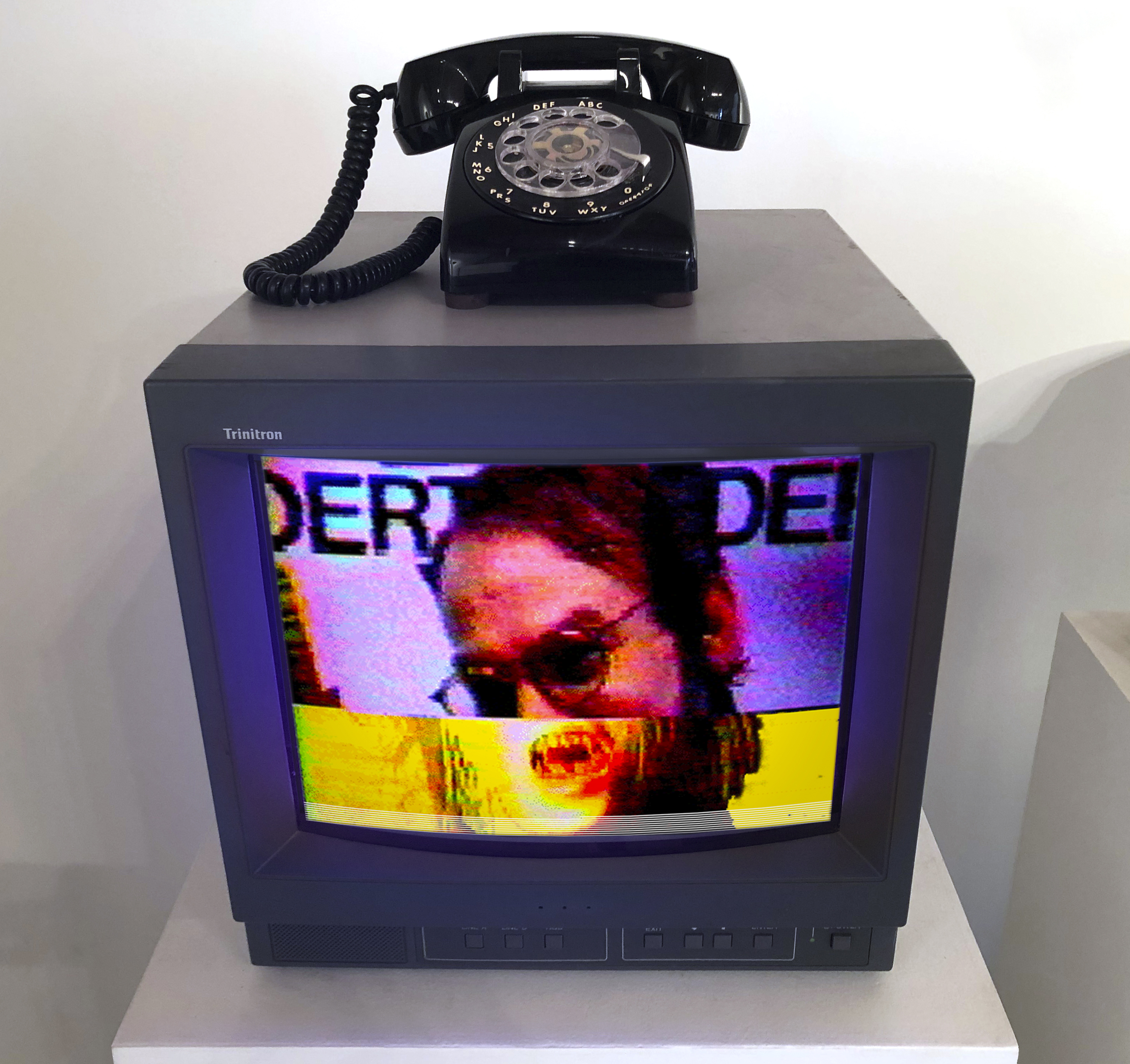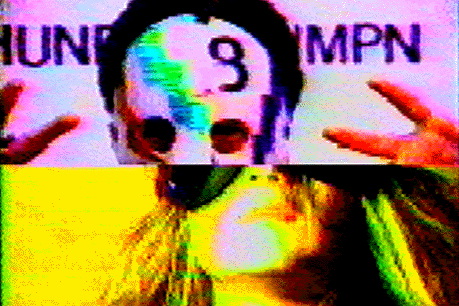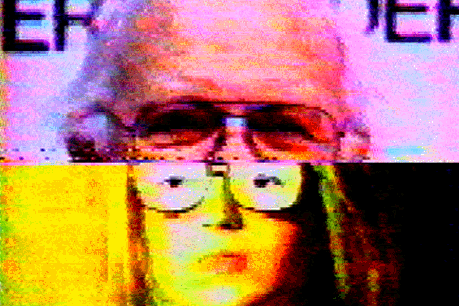INTERFACES
An interactive telecommunications work by Eduardo Kac, 1990
 Slow-Scan television (video transmission through analogue phone
lines), 1990, 34.5 (W) x 42 (D) x 47 (H) cm [13.5 x 16.5 x 18.5
inches]
Slow-Scan television (video transmission through analogue phone
lines), 1990, 34.5 (W) x 42 (D) x 47 (H) cm [13.5 x 16.5 x 18.5
inches]
"Interfaces" was a live exchange conceived and organized by
Eduardo Kac which took place on December 10, 1990, between a
group of artists in Chicago and another group in the Center For
Creative Inquiry, at the Carnegie-Mellon University, Pittsburgh.
This piece dynamically explored the formation and dissolution of
identities online. It was experienced projected on a large
screen in the auditorium of the The School of the Art Institute
of Chicago.
"Interfaces" established a visual dialogue between the
participants in a way that was purposefully similar to a verbal
exchange between two people -- bringing the improvised and
spontaneous feed-back loop of a personal conversation to the
realm of video. This "visual conversation" explored the
characteristic top-to-bottom, vertical rendering of slow-scan TV
(SSTV), to produce unexpected faces in real time.
Participants in Chicago were not aware of the exact images that
would be transmitted by the Pittsburgh group and vice-versa.
This unpredictable situation added an element of surprise to the
process. As images overlapped on the screen, parts of a face
(from Pittsburgh, for example) were slowly scanned over another
face (previously sent by the Chicago group). Successive faces
were created in the virtual space of the screen as the
performance progressed.

It took approximately eight seconds to form each image on the
screen. Participants in one location transmitted an image as
soon as they received an image from the other location. While a
face was scanned, eyes of a woman, for example, overlapped with
nose and mouth of a man. Parts of one face composed dynamically
an "in-between face" with parts of another face.

Improvisational and unpredictable, this piece addressed the emergence of a "collective identity" through telematic networks. As the artists involved merged their faces in a continuing visual dialogue, they contributed to the creation of an ever-flowing image of a decentralized self. Without closure, conclusion, or clear-cut end, the piece was interrupted approximately one hour after the first images were exchanged. While exchanging images in real time, this piece explored -- not space as form -- but the time of formation of the image.
Kac Web